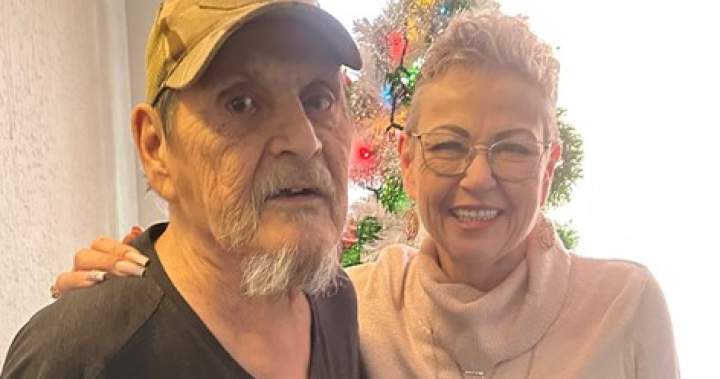Toward the end of 2024, a Metis man, Ruben St. Charles, went to the hospital to get hip surgery. While in surgery a staff member cut St. Charles’ hair without his consent, a ponytail that he had been growing out for more than 30 years.
St. Charles woke up shocked and upset when he realized his hair had been thrown away. Now, months later, the Saskatchewan Health Authority has released a new policy stating that consent is needed before cutting an Indigenous person’s hair.
Unfortunately, this is not the first time this has happened. Just last year in Edmonton, an Indigenous man from Pasqua First Nation had his hair cut off and thrown into the garbage while at the hospital. In 2022, a young Indigenous boy also had his hair cut off while at a daycare in Saskatoon.
Metis Nation Saskatchewan Minister of Health, Mental Health and Addictions Beverly Fullerton says she believes there is disconnect between Indigenous and Metis cultures at all institutions.
“The majority of the colonial policies in place that are impacting Indigenous people do not reflect their needs, their uniqueness and the diversity that we live with every day.” explained Fullerton.
“Indigenous hair, it holds meaning. It holds wisdom, it holds the teaching of our ancestors and for a lot of our Indigenous relatives and kin, hair is so meaningful to them. It is not just something we wear.
At the University of Saskatchewan, Dr. Holly Graham from Thunderchild First Nation is collaborating with the Canadian Association of Schools of Nursing to offer a series of five virtual workshops. These workshops will include: Anti-Indigenous Racism, Cultural Humility, Cultural Safety, History of Indigenous Peoples, and Implementing Call to Action #24.
Dr. Graham also has an online Indigenous Nursing Professional Practice Group that nurses can join to educate themselves and work toward addressing the current health disparities between Indigenous and non-Indigenous peoples.

Get weekly health news
Receive the latest medical news and health information delivered to you every Sunday.
“Before we can reconcile in a meaningful way, we have to know the truth and the truth is related to how we prevent or mitigate repeating past harms and mistakes.” shares Dr. Graham.
During her interview, Dr. Graham shared the work Wahkohtowin, which means we are all interconnected and related. She said she felt that the word reflected this story.
“We all make mistakes, and I think that it is so important that we own them and one of the quickest and simplest ways to restore that relationship is to say I’m sorry. And then hear what the person has to say… really, we just want to know that the other person is aware that they’ve harmed us and that we know that they are sorry,” said Dr. Graham.
According to Bonnie Marwood, an advocate for Ruben St. Charles, all he wants is an apology from the staff member that cut his hair.
Marwood expressed they hope this never happens again.
“It would be really nice to see their staff educated to learn why it is important and so that it’s not just a rule, but they have the education behind it and that this policy isn’t just performative.” said Marwood.
Dr. Graham, Marwood and Fullerton agreed that the policy was a step in the right direction, but at the same time they all expressed their concerns about the fact there were not any Indigenous or Metis representatives at the table while creating this policy.
Global News reached out to the SHA for a statement regarding the new policy and the incident involving St. Charles,
“The Saskatchewan Health Authority (SHA) is committed to creating a culturally safe and respectful environment in all our facilities, with all SHA team members having a role in fostering inclusive, respectful and culturally responsive health care. We acknowledge the deep cultural and spiritual significance of hair and braids in First Nations and Métis cultures and recognize that cutting hair without permission can cause emotional and spiritual harm, evoking past cultural trauma.
The SHA has, and again, extends its deepest apologies for the individual’s experience. A formal review was initiated at the time to investigate what had occurred and identify needed actions.
The SHA’s new Indigenous Hair Cutting Policy is important in our ongoing journey toward reconciliation and the delivery of equitable and culturally safe care. It reaffirms our commitment to the Truth and Reconciliation Calls to Action and supports our work to advance a culturally responsive health-care environment that acknowledges and respects the spiritual and cultural significance of hair to many Indigenous peoples.
The SHA also has created mandatory cultural responsiveness training for all staff and physicians. To date, more than 90 per cent of staff and physicians at the SHA have completed this training. Our priority is to provide high-quality, compassionate care that respects each patient’s cultural background and lived experience.”
For more information, please watch the video above.
© 2025 Global News, a division of Corus Entertainment Inc.
Saskatchewan Health Authority announces new Indigenous hair consent policy





